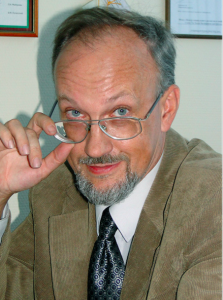© 2013 V.I.Moiseev
2013 – № 2 (6)
 Key words: holism, integrative medicine, medical-humanitarian education
Key words: holism, integrative medicine, medical-humanitarian education
Abstract: The article addresses the status of contemporary medical education. It is demonstrated that these days reductionism is predominant in biology and medicine influencing greatly medical education. An emergent need in holistic and integrative biomedicine is felt. The author introduces ideas of new medical-humanitarian education, discusses the principles of its organization.
The article discusses the status of modern medical education. It is demonstrated that today’s biology and medicine are dominated by reductionism postulating that all processes in biological systems can be attributed to physical and chemical relations on the level of atoms and molecules.
From this point of view, biology and medicine are perceived as applied sections of physics, while the human being is seen as a complex physicochemical system whose understanding can be sufficiently accomplished through laws of this science.
From this follows that biology and medicine are natural sciences, and all the humanitarian aspects, such as medical ethics, bioethics, spiritual/mental life of a human, etc., are viewed as epiphenomena derived in one or another way from the physical laws.
Such a presupposition influences increasingly medical education as well. Since medicine is understood as applied physics and taught as a natural science, then higher medical education is constructed as science-based, while humanities are considered something unnecessary to the professional knowledge of a doctor, as elements of common knowledge of any human.
Dividing an organism into ever more elementary particles, reductionism drowns into endless complexities of the data obtained and does not understand how to deal with it, how one can effectively use it.
But how this task is solved by a living organism itself?
The solution lies in formation of the whole from elements – cells from molecules, tissues from cells, organs from tissues, organism from organs, etc.
When the whole is formed, the elements lose possibility of independent behavior and start to obey an order which starkly simplifies description of the system and allows to deal with organization of complex systems composed of many elements.
Each time when complexity increases and management of the system becomes problematic, the nature follows the path of creation of new wholes, and organization simplifies again. Thus, forming a multitude of intermediate levels of organization which have their own wholes of an increasingly higher order, the organism manages to combine great complexity and manageability.
Therefore, complex biological systems are not organized directly on molecules and atoms, but include them into first-order wholes, the later form second-order wholes etc., until the whole of the organism is reached. Thanks to this multi-level structure, as was noted above, complexity and manageability of the system can be combined.
In reality we see that biological systems are organized in this way – they have multiple levels of organization, that’s why the theory of levels in not only a speculative variant of uniting complexity and manageability, but the reality of existence of living organisms.
Therefore, we need a new science of the phenomenon of life which will recognize the strong points of reductionism and will be able at the same time to overcome its limits using the theory of levels. Since each level is formed from its own wholes, this science is the science about wholes of increasingly higher orders. Historically, this teaching was named holism in the biomedical tradition, from the Greek word ‘ὅλος’, ‘holos’ meaning whole.
In the realm of medicine principles of holism are most vividly represented by the idea of ‘integrative medicine’, a type of medicine aimed at integrating different medical schools and traditions, i.e. Western and Eastern medicines, scientific and traditional medical schools. Since many of these schools – traditional, folk, complementary medicines – turn out to be simultaneously some sorts of holism highlighting the importance of entirety of the organism and its environment, integrative medicine acts as a virtually holistic movement.
In integrative and holistic traditions medicine acts as a complex type of knowledge and practice that includes both elements of natural sciences and humanities.
This type of medicine should be taught accordingly, using not only natural-science sort of medical education, but also humanitarian components. Such education can be called, for instance, medical-humanitarian type of medical education and practice.
Today there is neither dominant, nor acknowledged integrative medicine, but only its various fragments, as well as no recognized type of medical-humanitarian education in medical schools.
For last ten years the department of philosophy, biomedical ethics and humanities at Moscow State University of Medicine and Dentistry has been developing and promoting ideas of holistic and integrative medicine, as well as implementing elements of medical-humanitarian education. We are actively collaborating with the Center of Medical Anthropology at the Institute of Ethnology and Anthropology of Russian Academy of Sciences headed by Valentina Kharitonova.
Apparently, similar activities exist in various forms worldwide. World Health Organization conducts conferences and publishes reports on importance of complementary and alternative medicine, their integration into national healthcare systems (WHO traditional… 2013).
However, despite emerging trends of integration of medicine around the world, there are many theoretical and practical problems concerned with this phenomenon.
How to build this education? What type of doctor should be prepared within it? What type of knowledge and practice should be used to form an integratively thinking and acting specialist able not to lose all the advantages of reductionist medicine and simultaneously having all the strong sides of integral view on the phenomenon of life, health and illness?
Please read the full article in the Russian version of the Journal.
References
Sverdlov, E.D. (2006) Biologicheskij redukcionizm uhodit? Chto dal’she? [Is biological reductionism leaving?] Vestnik rossijskoj Akademii Nauk [Annals of Russian Academy of Sciences], Vol. 76 No. 8, p. 707–721.
Wilber, K. (2006) Kratkaja istorija vsego [A brief history of everything], Moscow: AST: Astrel’.
Wilber, K. (2004) Integral’naja psihologija [Integral Psychology], Moscow: OOO «Izdatelstvo AST».
WHO traditional medicine strategy: 2014–2023. (2013) World Health Organization.